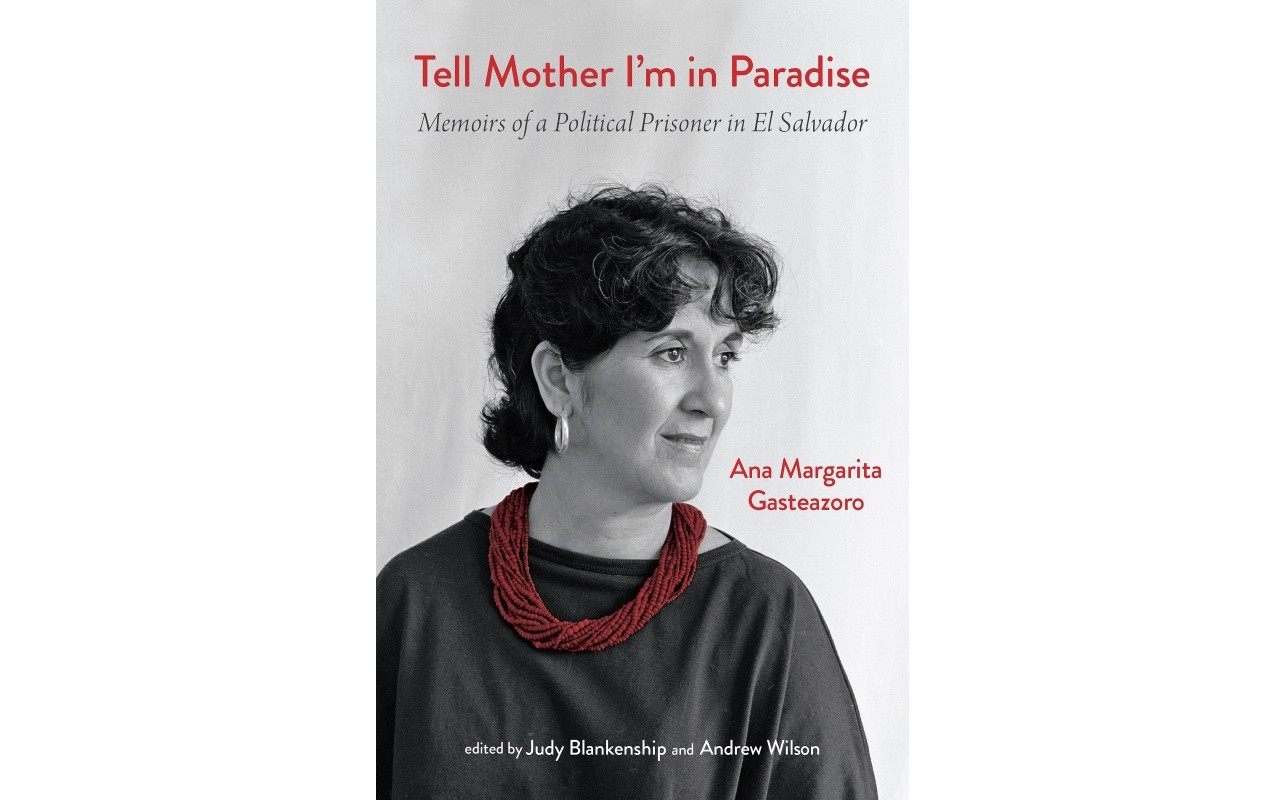
Memoirs of a political prisoner in El Salvador
In her recently published memoirs, Ana Margarita Gasteazoro recounts her life story as a political activist, clandestine operative, and prisoner of conscience.
Ana Margarita Gasteazoro was a Salvadoran opposition activist and renowned Amnesty International prisoner of conscience. Tell Mother I’m in Paradise: Memoirs of a Political Prisoner in El Salvador recounts her extraordinary life story. From a privileged Catholic upbringing, with time spent studying and working abroad, Ana Margarita first became a member of the legal political opposition in the late 1970s and later a clandestine operative at work against the brutal military junta.
“Gasteazoro intimately describes how ordinary Salvadorans survived state terror and organized revolution. The memoir is a gem of a source that will capture the attention and hearts of multiple audiences,” writes Diana Serra Becerra in a book review for NACLA magazine.
Gasteazoro recounts her early rebellion against the strictures of conservative upper-class Salvadoran society. She spoke perfect English and discovered a talent for organizing in administrative jobs abroad and at home. As the civil war progressed, she quickly became a valued figure in the National Revolutionary Movement (MNR), a social democratic party, often representing it at international meetings.
Against the backdrop of massive social oppression and the “disappearances” of thousands of opposition members, Gasteazoro began a double life as an operative in a faction of the Farabundo Martí National Liberation Front (FMLN). Multi-talented and energetic, she organized safe houses for fellow activists, transported weapons and equipment, wrote scripts for an underground radio station, and produced an award-winning documentary film. But the toll on her family life and personal relationships was heavy.
Ana Margarita disappeared in May 1981 at the hands of the infamous National Guard and endured a nightmarish 11 days of interrogations, beatings, and abuse. Through international pressure and the connections of her family, her arrest was finally made public, and she was transferred to the women’s prison at Ilopango. There, she and other activists continued the political struggle through the Committee of Political Prisoners of El Salvador (COPPES). During her two years in prison, tested by hunger strikes, violence, and factional divisions, and became one of Amnesty International’s best-known prisoners of conscience. Tell Mother I’m in Paradise is a gripping story of a self-aware activist and a vital young woman’s struggle to find her own way within a deeply conservative society.
This memoir, published first in Spanish by the Museo de la Palabra y la Imagen (MUPI) in 2019, is the result of a long series of interviews conducted by Gasteazoro’s close friends, Judy Blankenship and Andrew Wilson.
In 1987, Blankenship met Gasteazoro in San José, Costa Rica. Ana started telling her about difficult events in her life, like her imprisonment from 1981 to 1983, and her exile.
RELATED CONTENT
Together with Wilson, they fostered a friendship that led to the decision to record the story of Ana Margarita, who narrated her life in perfect English to her new friends.
The book takes us on a trip through her most remote memories — her mother's plants, her trips to study and live in California, Guatemala with the Maryknoll sisters, Spain, Jamaica, etc. These experiences enriched her culture and also her humanistic character. Her loves and heartbreaks. Her way of reinventing herself. The suffering caused by the “disappearance” of several of her friends.
“Gasteazoro led a dangerous underground life until she was eventually arrested, tortured, and imprisoned for two years in the notorious Ilopango Prison for Women. Here, the details are horrific and visceral. Tragically, Gasteazoro died before she could run for political office in the 1993 elections, but Blankenship and Wilson are commended for bringing her story to light,” reads a book review published at Kirkus.
As reported by Serra Becerra in NACLA, after much internal debate, the family approved the memoir for publication almost three decades after Gasteazoro’s fatal battle with breast cancer.
She died at age 42.
You can listen to part of the conversations between Gasteazoro and Blankenship on this podcast.












LEAVE A COMMENT: